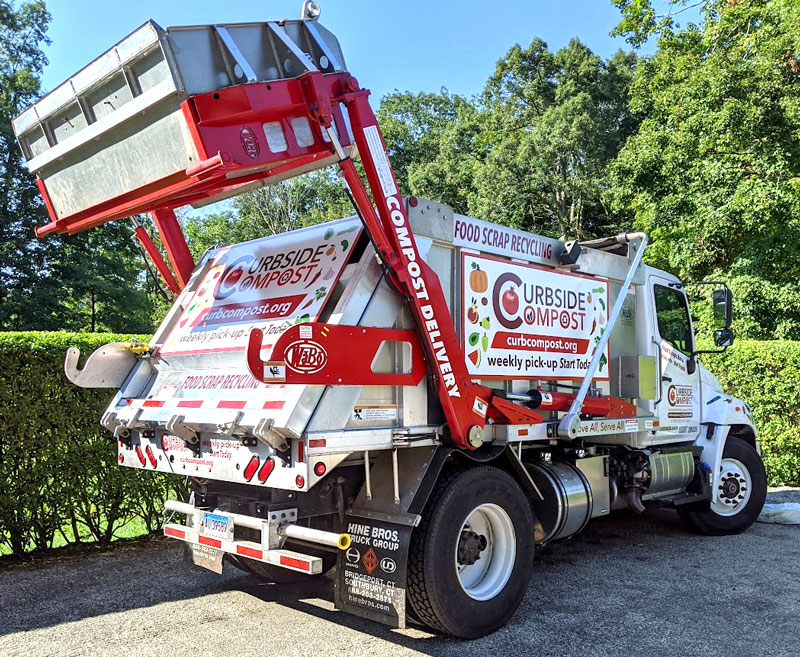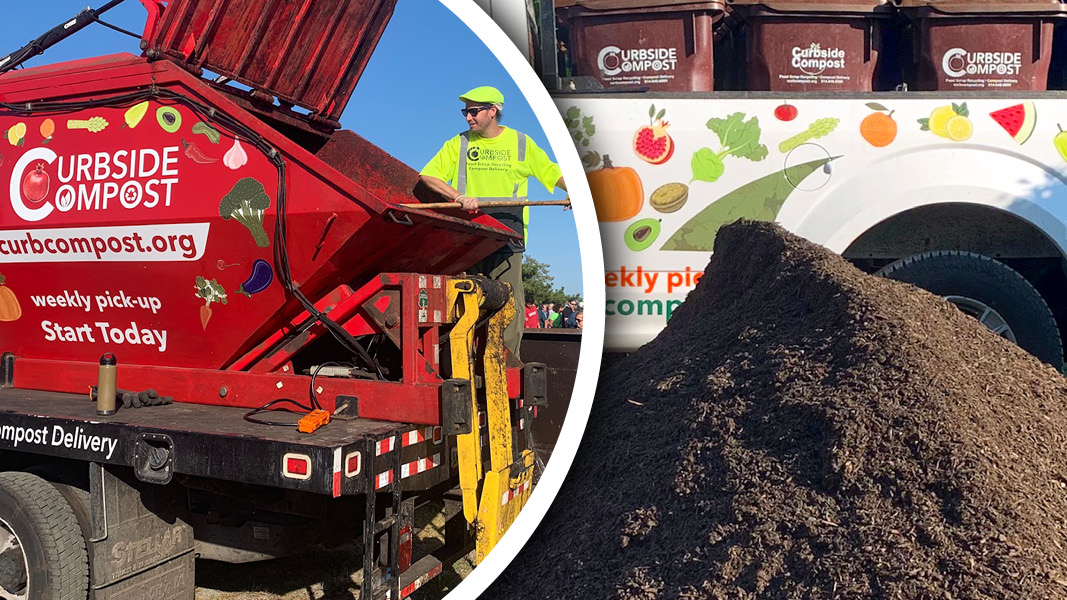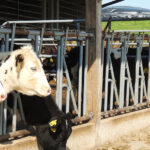Top: Curbside Compost founder Nick Skeadas (left) and commercial cart collection (right). Finished compost in foreground. Photos courtesy Curbside Compost
Curbside Compost, based in Ridgefield, Connecticut, was founded in 2015 by Nick Skeadas to fill a gap in residential and commercial food scraps collection in the southwestern region of the state. “There was a need in the market, and I was looking to start a business that provided a solution to an environmental problem,” explains Skeadas. “We originally started by offering a residential subscription service in Ridgefield, then added commercial accounts. Today we operate in Connecticut and New York and have about 650 residential and about 200 commercial stops. For commercial food waste generators, we work primarily in a 70-mile radius of our base in Ridgefield.”
Key to Curbside Compost’s growth has been building route density within that 70-mile radius, and procuring the equipment that best matches with that scaling. The company uses 5-gallon buckets for household food scraps, and 32- and 64-gallon carts for commercial and institutional. “For residential collection, we started out with a pickup truck, then realized that a cargo van was better as it is fully enclosed and has more capacity,” notes Skeadas. “For commercial accounts, our first purchase was a Ford F-550 truck with a bed that could accommodate carts and buckets and a Perkins insert with a cart lifter to service the carts. A water tank was installed on the bed and a pressure washer was installed underneath the bed for use during non-winter months. In the early days, our goal was to have flexibility for small and larger commercial clients.”

Curbside Compost’s Brown Industrial trailer body’s capacity is 4 tons, enabling collection on routes that include 20 food waste generators in one day.
Eventually, Curbside Compost grew into a collection tonnage range that required a larger capacity truck. Skeadas purchased a Brown Industrial trailer body that does not require a CDL-licensed driver — a vehicle he describes as the “bread and butter” for tonnage, with a powerful tipping arm. The trailer body’s capacity is 4 tons, enabling collection efficiency on routes that include 20 food waste generators in one day.
Finding a good balance between the tonnages of food waste collected and available processing capacity in the region has been integral to Curbside Compost’s success. Processors include a composting facility that accepts material with compostable packaging, a food scraps only composting site, and a stand-alone food waste anaerobic digester. “I developed the expertise to know the residuals being collected and who can process them,” explains Skeadas. “I have clients who want to use BPI-certified compostable food-contact packaging, and others who require depackaging of their food waste. It boils down to knowing the logistics, trucking requirements and residuals streams to service a wide range of clients and to optimize collection efficiency.”
In January 2025, Curbside Compost announced it had been acquired by Natural Upcycling, a food waste collection company servicing generators throughout the Northeast and mid-Atlantic states. “I’m excited to have an opportunity to advance the growth of food scrap recycling and soil delivery across the Northeast and mid-Atlantic,” says Skeadas. “With resources and support from Natural Upcycling, we are positioned to make an even greater impact. From concept and idea and humble beginnings, it is good because it is a pathway and a continuation of the work I enjoy. The acquisition proves out the fundamentals and economics of this type of business.”













